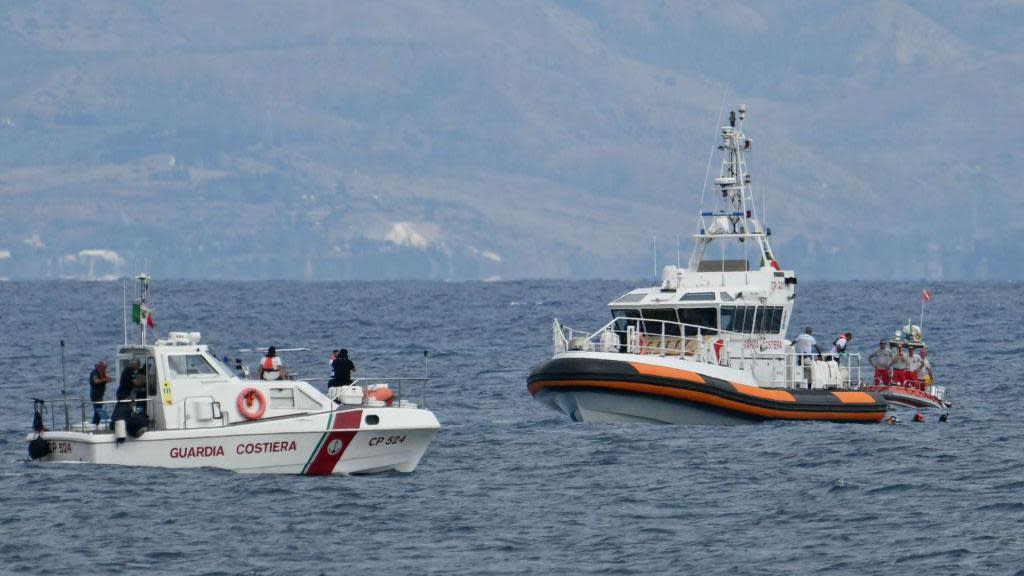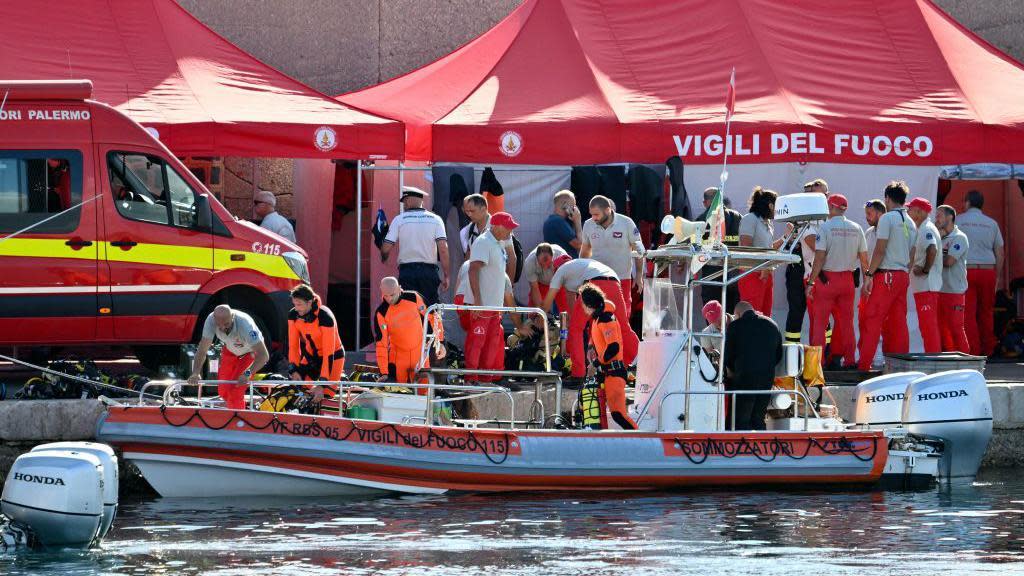Yacht crew 'would have had no warning about storm'

Those on board the Bayesian yacht likely "didn't have any warning at all" of the storm that caused the boat to sink, an oceanographer has said.
Inspectors from the Southampton-based Marine Accident Investigation Branch (MAIB) are examining the site where the yacht sank, because it was flying a British flag.
The organisation investigates marine incidents involving UK vessels or in UK territorial waters, solely to stop similar accidents happing again.
Dr Simon Boxall, a senior lecturer in oceanography at University of Southampton, said the MAIB was "incredibly good" and "renowned for the job they do".
"They will eventually get to the bottom of what happened," he said.

Fifteen of the 22 people who were on board the luxury yacht when it sank off the coast of Sicily on Monday morning were rescued, and six bodies have so far been found.
Dr Boxall said the boat was legally obliged to have a watchkeeper, but at night it would have been hard to spot approaching storms.
"There wasn't a lot of time for anyone who was on watch to respond," he said.
'Extremely difficult'
The shipwreck is at a depth of 50m (49.2ft) where there is "very little ambient light", according to Andy Goddard, from Swanwick-based Andark Diving and Watersports.
He said the search would be an "extremely difficult operation".
"You're going into a boat which is on its side so you're disorientated, and also all of the flotsam and jetsam which is in the boat [are] snagging hazards," he said.
He said the search was dangerous for the divers.
"As you descend underwater, your body absorbs more and more of the nitrogen that's in the air that we're breathing," he said.
"If you stay down too long too deep, and you were to come up in the normal way... that still would not be enough time to allow all that excess nitrogen to be breathed out again."
You can follow BBC Hampshire & Isle of Wight on Facebook, X (Twitter), or Instagram.
One person still missing as officials work to identify five bodies found on Sicily yacht
'For two seconds I lost my baby in the sea' - Sicily yacht survivor
